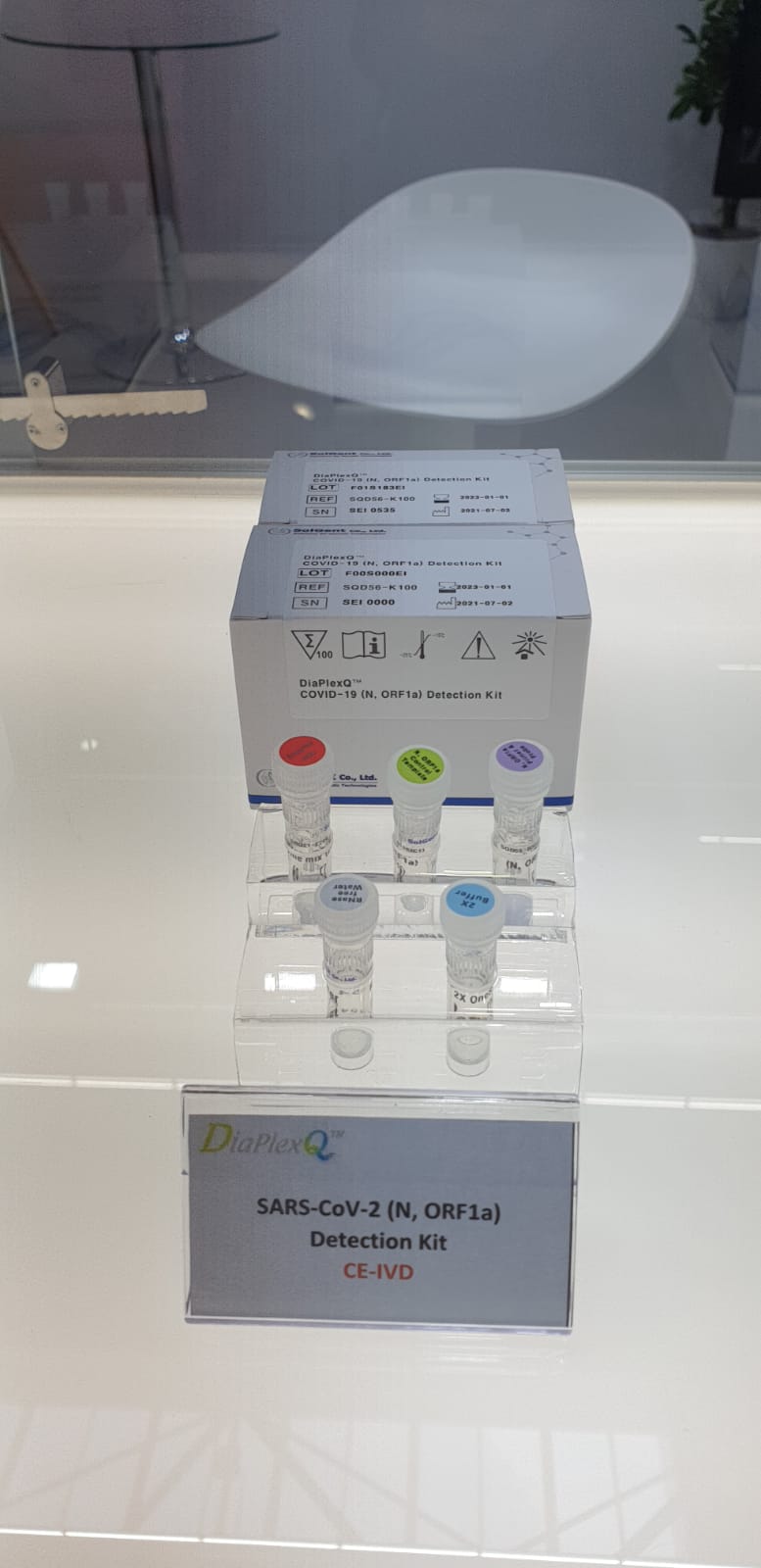Bottom
India bears the second highest burden of severe acute respiratory syndrome coronavirus-2 (SARS-CoV-2) infection. A multitude of reverse transcription-polymerase chain reaction (RT-PCR) detection assays with disparate genetic targets are available, including high-throughput automated platforms.
Varying agreement and interpretation of diagnostic results in this setting can cause significant delays in reporting, leading to suboptimal disease management. This article reports on the development of a new ORF1a-based SARS-CoV-2 RT-PCR assay, Viroselect, which shows high concordance with conventional assays and the ability to resolve inconclusive results generated during the peak of the epidemic in Mumbai, India.
Characteristics:
- Hot Start PCR: high specificity
- Detection Target: N and ORF1a genes
- OneStep PCR – Multiple targets in a single reaction
- Reliable system: RNase P internal control
- Easy-to-use master mix – just add template and primer/probe mix
- Rapid detection: 75-minute amplification
- Sample type: Bronchoalveolar lavage fluid (BAL), nasopharyngeal, oropharyngeal, nasal, sputum
Methods
A unique target region within SARS-CoV-2 ORF1a, the non-structural protein 3 (nsp3) region, was used to design and develop the assay. This hypervariable region (1923–3956) between SARS-CoV-2, SARS-CoV-1, and the Middle East respiratory syndrome coronavirus was used to design the primers and probes for the RT-PCR assay. We assessed the concordance of this trial with commonly used emergency use authorization manual kits (US Food and Drug Administration) and a high throughput automated test platform. In addition, a retrospective analysis was performed with Viroselect on samples reported as “inconclusive” between April and October 2020.
Results
In total, 701 samples were analyzed. Concordance analysis of 477 samples demonstrated a high overall agreement of Viroselect with the manual (87.6%) and automated (84.7%) assays. In addition, in a retrospective analysis of 224 additional samples reported as “inconclusive”, Viroselect was able to resolve 100% (19/19) and 93.7% (192/205) of the samples that returned inconclusive results on manual platforms. and automated high performance. , respectively.
Conclusion
Viroselect was highly consistent with conventional assays, both manual and automated, and has the potential to resolve inconclusive samples.
Keywords
SARS-CoV 2 RT-PCRI Inconclusive samples Viroselect High throughput SARS-CoV-2 testing Delay in reporting

